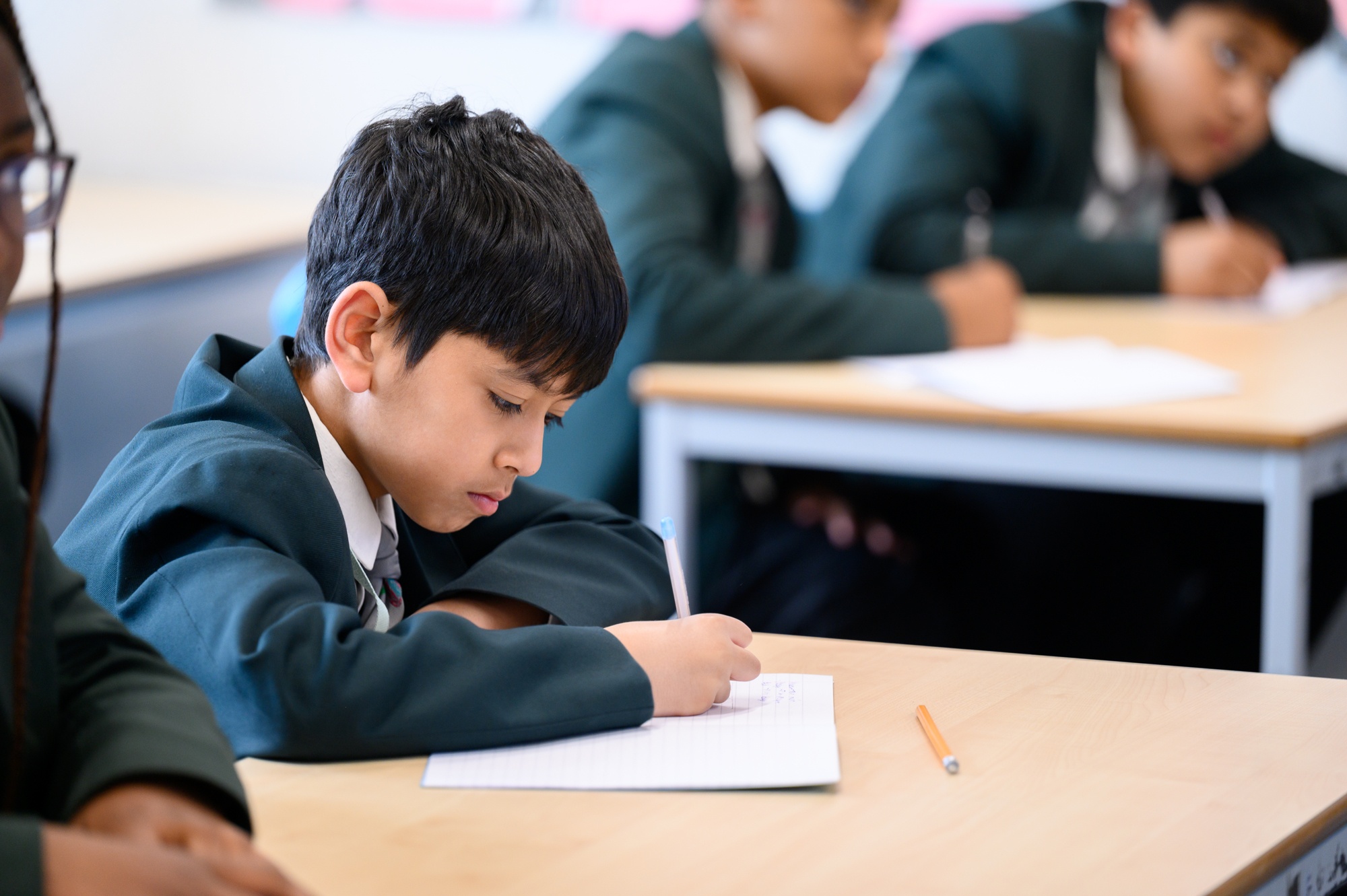English
English Language and Literature GCSE (AQA 8700 and 8702)
The core of the English GCSE course is to foster the enjoyment of reading, writing, speaking and listening in a range of different ways. Students will engage with a variety of texts, both fiction and non-fiction, and will experiment in writing in different forms and for different audiences. They will learn to analyse and evaluate texts and gain confidence in expressing their ideas clearly and concisely.
All students will follow AQA GCSE English Language and English Literature, beginning in Year 9, with the final examinations mostly taken in the June of Year 11.
GCSE Award
Students will be awarded two GCSEs in English (English Language and Literature). English Language is an essential qualification for all university courses and most college courses, and it is viewed as an essential qualification by most employers.

Progression
This course is compulsory for all students to undertake at KS4. It builds upon skills that are integral to many other subjects and is an important requirement for most KS5 courses and higher education courses.
English Language Course Content and Assessment
Students will take two written examinations. They will respond critically to how established writers use narrative and descriptive techniques to capture the interest of readers and will also write their own creative texts. There is a Spoken Language Endorsement, which is teacher assessed and is in addition to the final English Language grade.

English Literature Course Content and Assessment
There are two written examinations, one focusing on a Shakespeare play and a 19th century novel, the other on a modern play and a series of poems; there is also an unseen poetry element. All examinations will require students to apply the skills of analysis they’ve acquired throughout their course of study.
